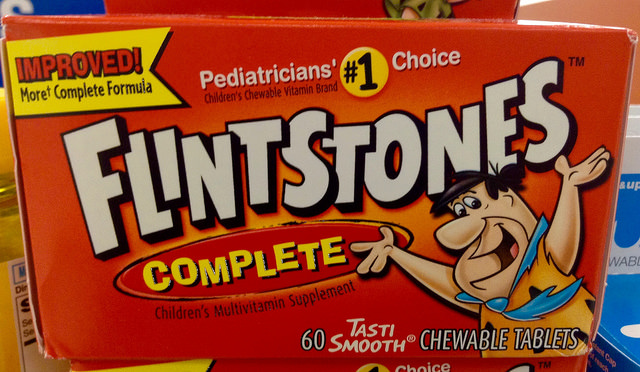Flintstone gummies have been a staple of every childhood. The candy that is supposedly good for you is a small nostalgic highlight. But the attitude towards supplements they develop far deviates from the health benefits they purport.
Unregulated by the Food and Drug Administration, vitamins among other supplements — such as herbal extracts and weight loss supplements — are easily available over the counter at grocery stores and pharmacies nationwide. And for most consumers, there is no hesitation in purchasing these supplements; after all, they might not look like Fred and Barney, but they’re pretty much the same thing right?
What they have in common is that they are all completely useless. A study from the International Journal of Preventive Medicine showed that multivitamin supplements (MVM) are completely unnecessary for one’s health and stated that “…although in the long run MVMs may slightly increase the risk of cancer and cardiovascular diseases, in the short run they produce little harm or no harm, and thus negative consequences will not be discernible by individuals taking them.”
However, since the publication, one claim has drastically changed. Negative consequences in the short run have become discernible. More than 20,000 emergency room visits a year can be traced back to dietary supplements. Many of these visits include children taking adult supplements, likely due to confusing adult pills for their own pills. But these pills shouldn’t be in people’s homes in the first place.
Pseudoscience and irresponsible advertising keep unwitting customers hooked. For example, at the first sign of a sniffle and a sneeze, many people reach for their nearest Vitamin C supplement, sold by companies with snappy names like Emergen-C. But Vitamin C has never been proven to have curative effects on the common cold. In fact, far from preventing a cold, overdoses of Vitamin C can cause diarrhea and nausea. But the damage of their initial marketing had already been done, and Vitamin C has become a staple ineffective home remedy for the cold.
And these dangers only encompass some of the most common types of supplements. The irresponsible marketing and lack of regulation propagate more nefarious supplements such as SARMs, Selective Androgen Receptor Modulators. The name itself is scary. The supplement is a muscle building, fat burning compound touted to be a legal alternative to steroids. But the health concerns of SARMs rival those of steroids. While the FDA has officially banned SARM compounds such as Oscarine from supplements, the volume of companies that evade the FDA by producing such supplements coupled with internet sales and grassroots marketing make them difficult to pindown.
Ultimately, the culture around supplements needs to change. America is one of the greatest users of unnecessary dietary supplements. Instead of eating a balanced diet, the convenience of a pill is appealing. But this convenience can come at a very real and grave cost. Supplement companies need to be more responsible about the manufacturing and marketing of their products. And while the FDA doesn’t do much for the former, they can start to enforce stricter marketing standards. Hopefully, this will incite more personal caution in taking such supplements and avoid significant costs and risks to human life.
Batlanki is a neuroscience sophomore from Flower Mound. Follow him on Twitter @RohanBatlanki.





















